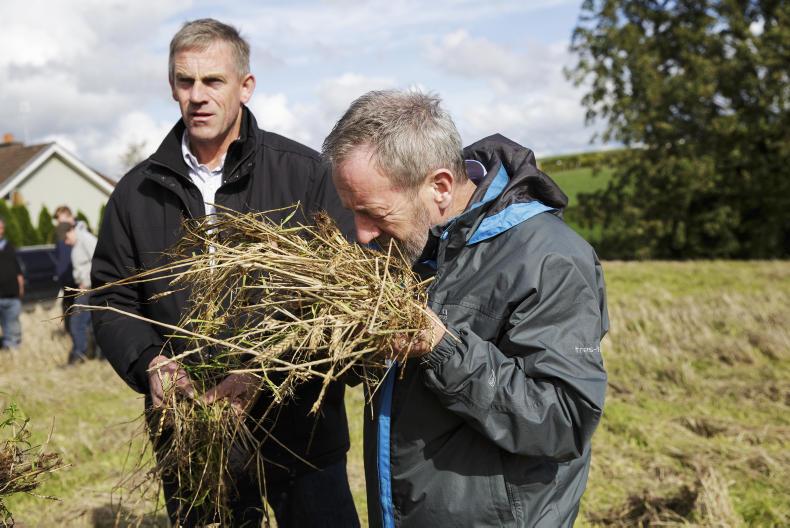With its grain production expected to drop by nearly a quarter this year following successive flooding and drought since the summer, the largest cereals producer in the EU is seeking help from Brussels.
“We have asked the European Commission to examine the exceptionally difficult situation experienced by the French grain industry and to make proposals accordingly,” a spokesperson for the French Ministry of Agriculture told the Irish Farmers Journal.
Stéphane Le Foll, the French agriculture minister, has already announced €100m in tax breaks for tillage farmers earlier this month. Cash-strapped farmers will also have an option to postpone their bank repayments for a year can obtain finance at around 1% interest.
The package also includes resources for social services to help farmers in “psychological distress”, replacement workers for “burned-out farmers” and payments for those forced to give up farming, retrain and relocate.
Any more would break EU state aid rules, yet this is not enough for farm organisations. “This weather event has caused a €4bn loss and the government is offering €170m,” said FNSEA representative Arnaud Rousseau, who farms in the area worst affected by flooding near Paris. Dismayed by the lack of action at EU level, he promised that farmers would make their voices heard as the French presidential election campaign kicks off in the new year.
No other member state has yet supported the French proposal for EU tillage aid, according to the European Commission.
While harvest 2016 was difficult across northern Europe, no country is in such a bad place as France.

Germany has produced 15% less grain than the previous three years’ average, yet “everything was brought in, but at low quality and high moisture”, said Willi Kampmann of the German farm organisation DBV.
Berlin, too, has made tax breaks and cheap loans available to tillage farmers.
The UK has just reported a 10.7% drop in its grain production – merely back in line with usual averages after the 2105 bumper harvest.
Here, the Department of Agriculture has not indicated support for French demands, instead highlighting that 2.95% interest loans are available to tillage farmers.
This leaves the burden of campaigning for EU tillage aid with farm organisations. COPA-COGECA’s secretary general Pekka Pesonen has singled out France and Ireland as countries where the grain sector is in a “critical state”. “We consequently believe emergency support should be given to avoid farmers going bankrupt”, he added.
IFA president Joe Healy and his French colleagues have tried to drum up support in Brussels in recent days. German and Polish farm organisations contacted by the Irish Farmers Journal have offered timid support, but this is not their priority.
Fine Gael MEP Sean Kelly told the Irish Farmers Journal that European funds should support farmers hit by localised harvest failure. “When you have all your seed and fertiliser paid, it’s your livelihood. We can’t just say we won’t help you because it is a small area.”






 This is a subscriber-only article
This is a subscriber-only article











SHARING OPTIONS: